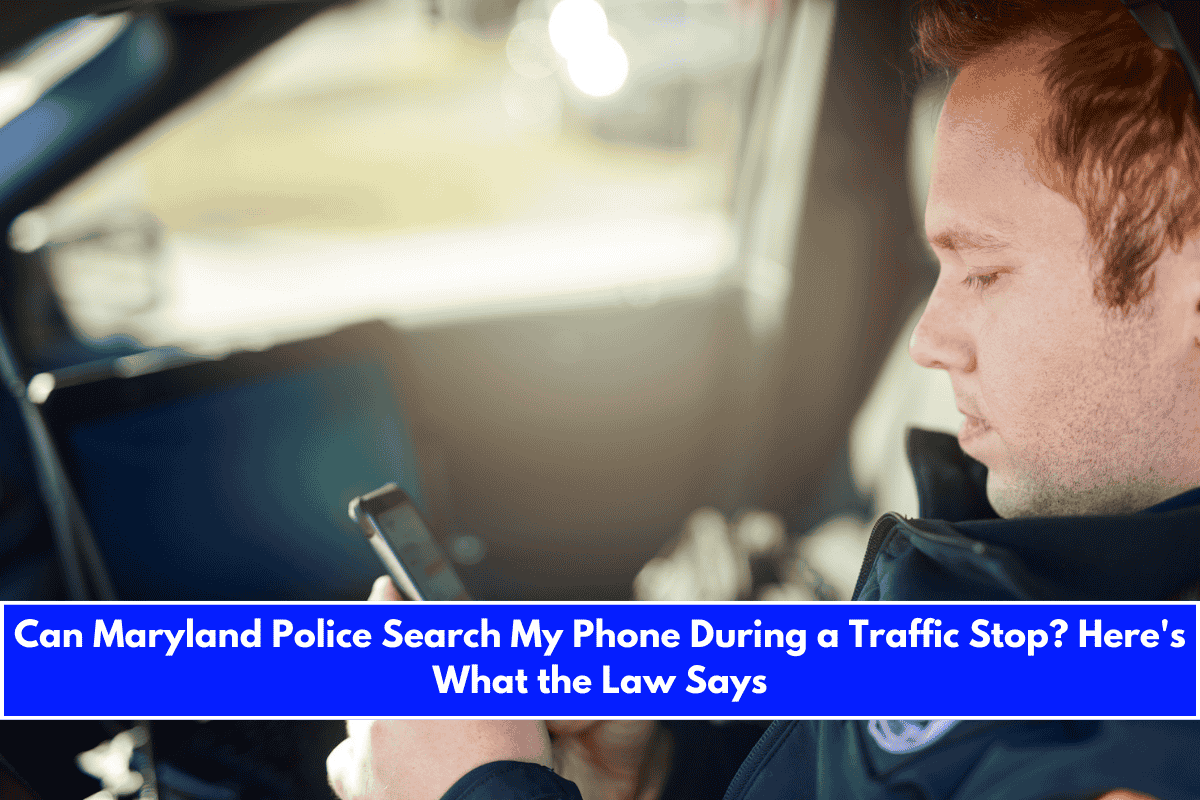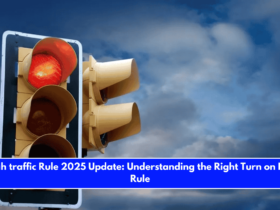Police in Maryland cannot search your cell phone during a traffic stop without a warrant. This principle is grounded in the 2014 U.S. Supreme Court decision Riley v. California, which held that law enforcement must obtain a search warrant before accessing the contents of a cell phone, even after an arrest.
The Court recognized that cell phones contain vast amounts of private information and are fundamentally different from other items police might search incident to arrest.
“Our answer to the question of what police must do before searching a cell phone seized incident to an arrest is accordingly simple – get a warrant.” – Chief Justice Roberts, Riley v. California.
Maryland’s Additional Protections
Maryland courts have further strengthened these protections. The Maryland Court of Appeals ruled that warrants to search cell phones must be specific and limited to the evidence relevant to the alleged crime.
Blanket or overly broad warrants that allow police to search “any and all data” on a phone violate the Fourth Amendment’s particularity requirement. This means:
- A valid warrant must describe exactly what data or apps may be searched (e.g., text messages from a certain period, photos relevant to a case).
- Warrants must be narrowly tailored to the probable cause that justifies the search.
Exceptions to the Warrant Requirement
There are only a few exceptions where police may search your phone without a warrant:
- Consent: If you voluntarily allow police to search your phone, they may do so without a warrant. You are never required to give consent, and legal experts strongly advise against it.
- Exigent Circumstances: If police reasonably believe that evidence on your phone is at immediate risk of being destroyed, they may be able to search or seize your device without a warrant.
- Incident to Arrest (but not phone search): Police may seize your phone if you are arrested, but they still cannot search its contents without a warrant.
What If Police Ask to Search Your Phone?
If police ask to search your phone during a traffic stop:
- You have the right to refuse consent.
- You are not required to provide your password or unlock your device.
- If police proceed without a warrant or valid exception, any evidence they find may be challenged and potentially suppressed in court.
Recent Developments and Enforcement
Following recent court rulings, police departments in Maryland-such as Baltimore-have paused or revised their phone search procedures to ensure compliance with these legal standards. Not all departments have fully implemented these changes, so unlawful searches may still occur, but such evidence is vulnerable to legal challenge.
Summary Table: Maryland Police and Cell Phone Searches
| Scenario | Can Police Search Your Phone? | Legal Requirement |
|---|---|---|
| Routine traffic stop | No | Warrant or valid exception needed |
| After arrest | No (can seize, but not search) | Warrant required |
| With your consent | Yes | No warrant needed |
| Exigent circumstances (evidence at risk) | Possibly | Must justify immediate threat |
| With a specific, narrow warrant | Yes | Must be limited to probable cause |
Maryland police cannot search your phone during a traffic stop without your consent or a properly limited search warrant. You have strong privacy rights over your digital data, and courts in Maryland have reinforced these protections. If police search your phone without following these rules, any evidence obtained may be excluded in court.
Sources:
- https://www.marylandcriminallawyer-blog.com/what-is-and-is-not-proper-justification-for-a-maryland-traffic-stop-based-on-a-drivers-use-of-cell-phone-while-driving/
- https://www.houlonberman.com/blog/supreme-court-ruling-cell-phones-searched-without-warrant/
- https://www.eff.org/deeplinks/2022/10/new-federal-and-state-court-rulings-show-courts-are-divided-scope-cell-phone
- https://mylolowcountry.com/usa-laws/can-maryland-police-search-my-phone-during-a-traffic-stop-heres-what-the-law-says/











Leave a Reply